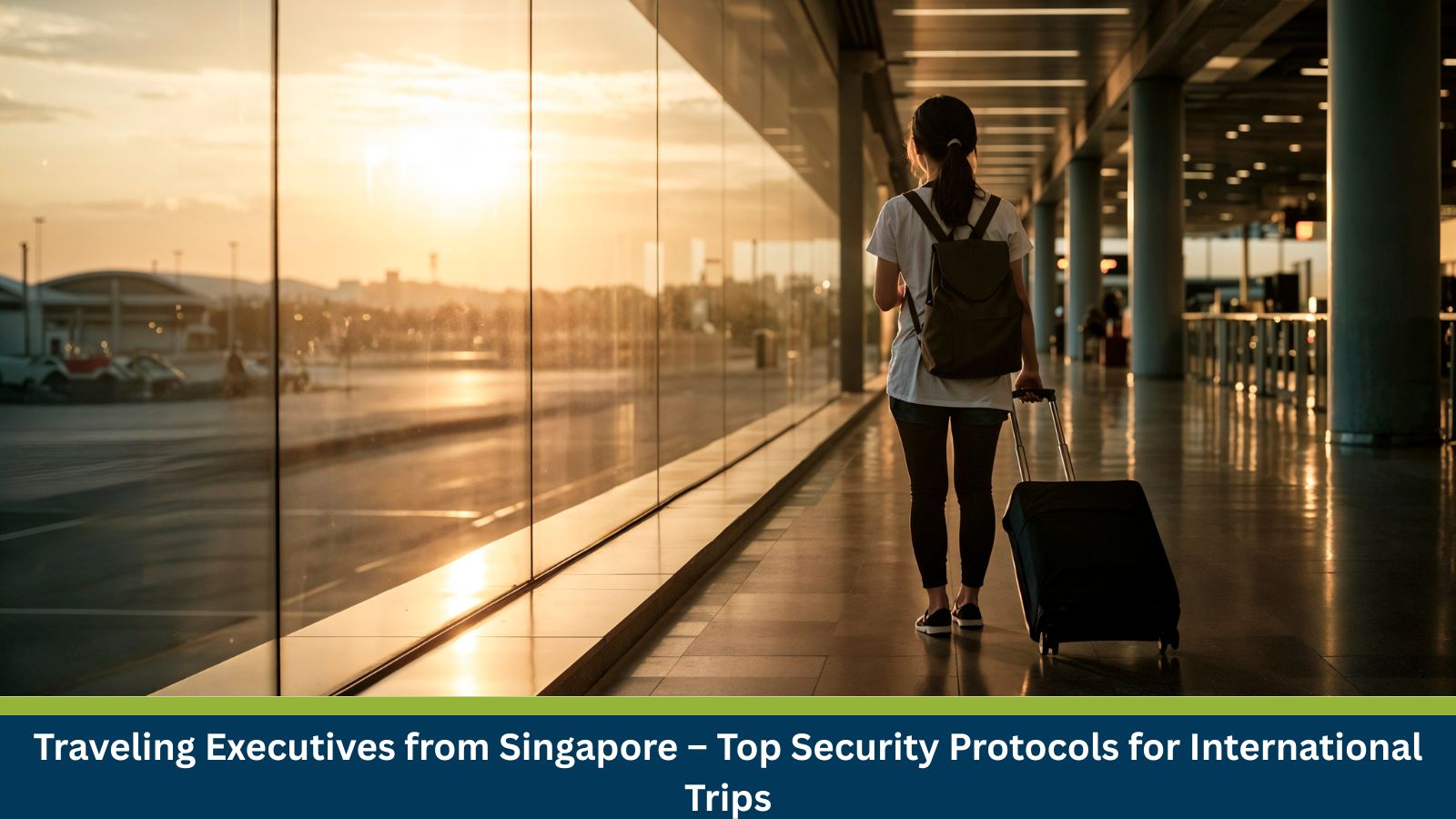Singapore sits at the crossroads of Asia, making it a launchpad for executives traveling to China, India, Southeast Asia, the Middle East, and Africa. While Singapore itself is highly secure, executives leaving the city-state face vastly different environments—ranging from geopolitical flashpoints to regions with high crime or fragile healthcare systems.
For Singapore-based organizations, executive safety is intertwined with corporate continuity. Developing Security Protocols for outbound travel is therefore a strategic imperative, not a procedural one.
Establishing a Structured Framework with ISO 31030
ISO 31030 offers a consistent way to manage risks across diverse markets. For Singaporean firms, this means creating Security Protocols that address risks like:
- Cross-border political tensions in Asia.
- Terrorism and insurgency in parts of South Asia.
- Health crises in developing regions.
- Sophisticated cyber espionage targeting executives in finance and technology.
Aligning with ISO ensures travel safety measures are globally consistent yet locally adaptable.
The Three Pillars of Executive Travel Security
ASIS’s three-pillar model provides practical direction:
- Intelligence: For Singapore executives, this includes monitoring border closures, trade disruptions, and political protests in neighboring countries.
- Mitigation: Encrypted devices, trusted drivers, and secure accommodations are crucial safeguards. Legal compliance is also vital in regions where laws differ sharply from Singapore’s strict norms.
- Contingency Planning: Emergency evacuation, insurance-backed medical care, and digital backup systems help executives navigate crises.
Embedding these pillars ensures Security Protocols address both physical and digital domains.
Continuous Oversight and Agile Adaptation
Outbound travel from Singapore often spans multiple risk zones in one journey. Executives may move from stable financial hubs to regions experiencing sudden unrest. This requires live intelligence feeds and frequent reassessment of risks. Static planning is inadequate, organizations must embrace adaptive Security Protocols that evolve in real time.
Executive Travel as a Lifecycle
A lifecycle model ensures risks are managed comprehensively:
- Pre-Trip: Compliance training, geopolitical briefings, medical preparation.
- During Travel: Secure communications, safe transport, real-time monitoring.
- Post-Trip: Cyber forensics to check for data compromise and debriefs to strengthen future protocols.
This cycle turns every trip into an opportunity to improve resilience.
Building a Culture of Security Among Singaporean Leaders
Executives are role models. For Singapore-based leaders, adhering to Security Protocols is especially important when traveling to jurisdictions with weaker enforcement of law. Leadership compliance fosters a culture where safety and duty of care are seen as organizational priorities, not optional measures.
FAQs – Security Protocols for Singapore Executives
Q1. Why do Singapore executives face unique risks abroad?
Because outbound travel often takes them from a highly regulated environment into regions with greater instability.
Q2. What are the most common risks?
Cyber espionage, political unrest, terrorism, health risks, and strict legal variations.
Q3. Why is ISO 31030 critical?
It standardizes travel safety and creates defensible, globally aligned protocols.
Q4. How can risk managers prepare executives?
Through cultural training, intelligence briefings, and secure logistics planning.
Q5. What post-trip measures should be taken?
Cyber audits and feedback sessions to detect breaches and strengthen policies.
Key Takeaway for Risk Managers
Executives leaving Singapore represent high-value targets in a region where geopolitical volatility and cyber threats are intensifying. By embedding ISO 31030 and ASIS’s three-pillar approach into Security Protocols, organizations can protect both their leadership and their long-term business interests in an unpredictable world.
Singapore’s Leaders Deserve World-Class Protection Abroad
Singapore-based executives are global decision-makers, often traveling into volatile or high-risk environments. MitKat empowers organizations to adopt Security Protocols that mitigate cyber, physical, and geopolitical risks, protecting both executives and corporate reputation.
Strengthen your organization’s duty of care with MitKat.






